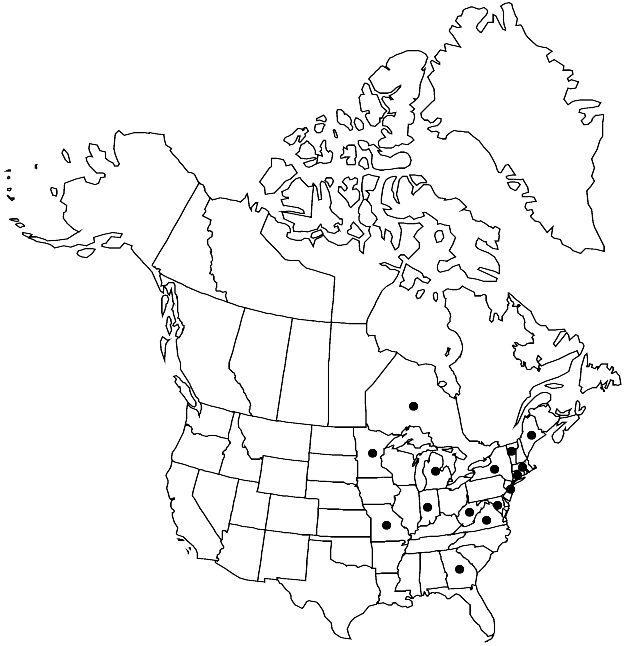Orthotrichum lescurii
Musci Appalach., 163. 1870.
Plants to 1 cm, dull. Stem leaves stiff, erect-appressed when dry, narrowly lanceolate to lanceolate, 2–2.5 mm; margins revolute to just below apex, entire; apex acute; basal laminal cells quadrate to rectangular, walls thin, not nodose; distal cells 8–12 µm, 1-stratose, papillae 1–3 per cell, conic, small. Specialized asexual reproduction absent. Sexual condition gonioautoicous. Seta 0.5–0.7 mm. Capsule immersed, ovate, 1.1–1.8 mm, distinctly 8-ribbed, constricted below mouth when dry; stomata immersed; peristome single; prostome small or absent; exostome teeth 8, incurved-erect to spreading-recurved when dry, finely, densely papillose; endostome segments absent. Calyptra oblong-conic, smooth, hairy, hairs papillose. Spores 12–16 µm.
Habitat: Calcareous rock
Elevation: low to moderate elevations (0- 1500 m)
Distribution

Ont., Conn., Ga., Ind., Maine, Md., Mass., Mich., Minn., Mo., N.J., N.Y., Vt., Va., W.Va.
Discussion
Orthotrichum lescurii is sparsely distributed across eastern North America. The species is distinguished from others of Orthotrichum that occur on calcareous rock in eastern and central North America by strongly revolute leaf margins and immersed, ovate, strongly 8-ribbed, strangulate capsules. Orthotrichum anomalum has exserted capsules, O. parvulum has plane, 1-stratose margins, and O. strangulatum has multistratose leaf margins. The stomata in O. lescurii are found in the proximal half of the capsule, partially covered by subsidiary cells.
Selected References
None.